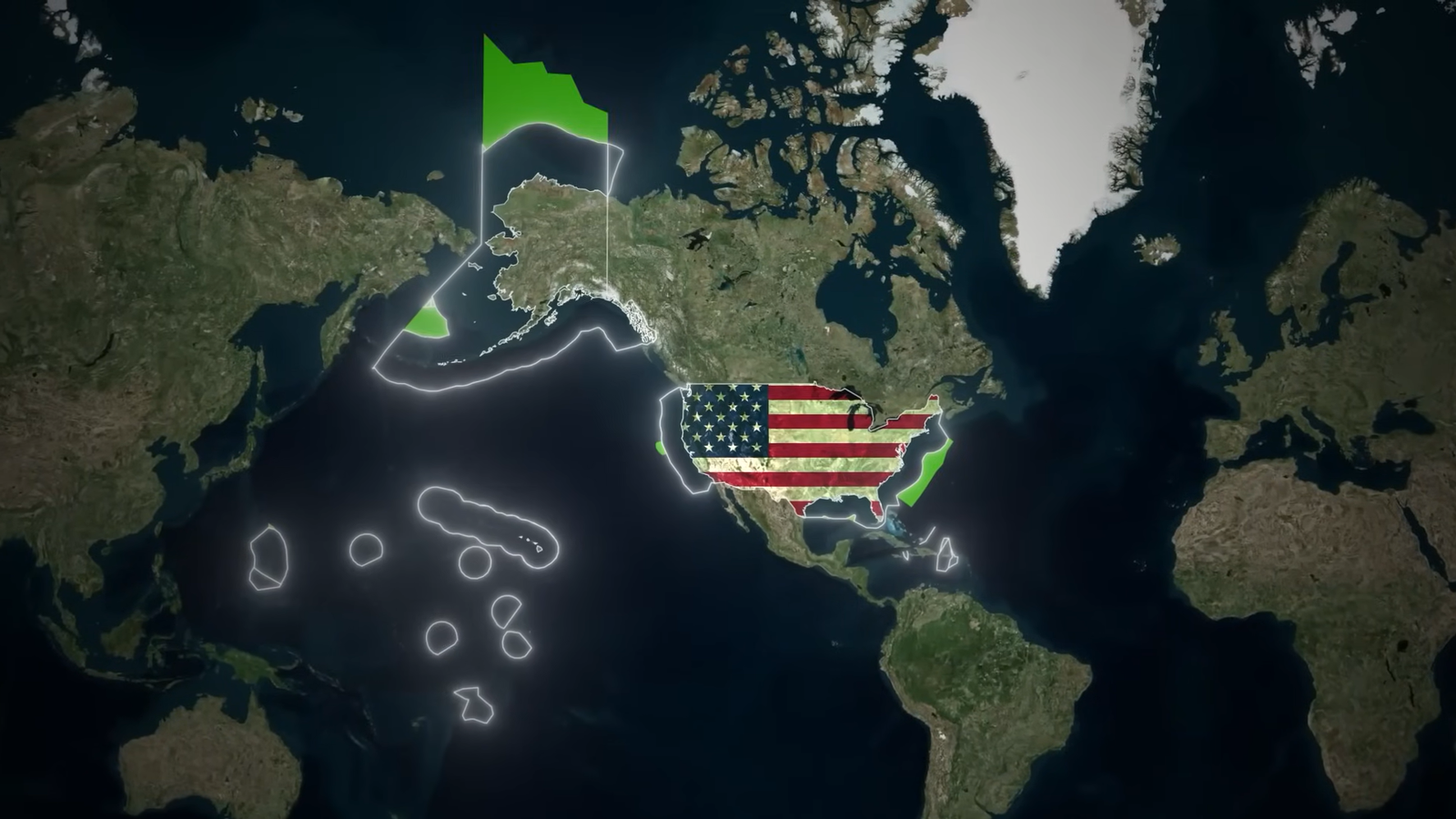A recent development went unnoticed by the masses, the US territory was successfully expanded without firing a single shot or raising any flags. Through an exercise in scientific and legal prowess, the US has extended its maritime boundaries, adding approximately 386,000 square miles to its territory. This US territory expansion is the largest since the acquisition of Alaska in 1867. It holds profound implications for geopolitics, resource exploration, and the global balance of power.
At the heart of this expansion is the declaration of the outer limits of the US territory’s extended continental shelf (ECS), a portion of its coast beyond the 200 nautical miles automatically entitled to coastal states. This move comes amidst shifting global dynamics, particularly in the realm of energy. As the world transitions towards renewable energy and clean technologies, there is a growing demand for critical minerals found in deep-sea deposits. This demand underscores a race among nations, both large and small, to exploit natural resources through deep-sea mining, setting the stage for geopolitical competition in the 21st century.

The process of claiming an extended US territory is not a small deal. It requires meticulous scientific research and legal arguments to justify jurisdictional rights. The United Nations Convention on the Law of the Sea (UNCLOS) serves as the foundational framework governing maritime boundaries. It defines the distinct zones with varying rights and opportunities for coastal states. From the territorial sea to the exclusive economic zone (EEZ) and finally to the extended continental shelf, each zone grants different levels of sovereignty and resource exploitation rights.
US Territory Expansion Implications
While the recent US territory’s expansion aligns with UNCLOS principles, it’s notable that the country has yet to ratify the treaty. This decision has implications for the future, as it raises questions about the US’s commitment to international norms and the enforcement of maritime regulations. Moreover, the expansion sets a precedent that could be leveraged by other nations, including geopolitical rivals like Russia and China, to assert their own territorial claims and advance their strategic interests.
Beyond the geopolitical implications, the US territory expansion holds significant economic potential for the US. With vast untapped resources, including oil, gas, and critical minerals, the newly claimed territory could bolster domestic energy security and reduce reliance on foreign suppliers. Furthermore, it opens avenues for infrastructure development and military fortification in strategic locations, particularly in the Arctic region.
However, challenges and uncertainties related to US territory expansion still remain. The overlapping territorial claims with neighboring countries, such as Canada, and the potential for disputes over resource extraction rights underscore the complexity of maritime geopolitics. Additionally, the US’s reluctance to ratify UNCLOS raises questions about its long-term commitment to international cooperation and multilateralism.
Read More:- Japan’s Strategic Shift Towards Defense Autonomy
Conclusion
In conclusion, the recent US territory expansion represents a significant milestone in maritime geopolitics, with far-reaching implications for global power dynamics, resource exploration, and environmental sustainability. As nations navigate the complexities of maritime law and geopolitical competition, the need for collaboration, diplomacy, and adherence to international norms becomes increasingly paramount in shaping the future of our oceans and the world at large.
Do you want to explore the world of anime? Go to Pop Media Pulse
